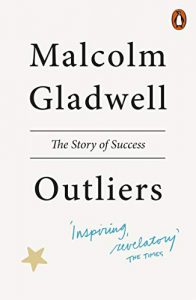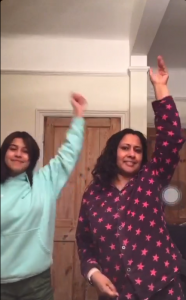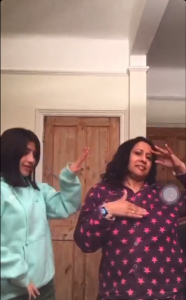Hands up who knows what ‘Savage’ is or what Tik Tok is?
The coronavirus pandemic has had many, many impacts on all our lives. Many of them are or feel negative, constraining, or frightening. But not all. There is less commuting, less juggling of work and life balance, more time with family – things I am very grateful for.
It has caused me to think about how I and others react when faced with new challenges. When I feel embarrassed or bad at something, or when it feels hard, am I led to give up or try again?
Years ago, I read Malcolm Gladwell’s Outliers. I love all his books and if you haven’t read any, I would highly recommend them. Outliers is mind-blowing. It turned on its head much of what I had grown up being encouraged to believe. His main premise is that natural talent is a myth; most success comes because people work hard and practice, though they need to have had the opportunity. I always believed that people are born able to do certain things or are not. This perspective is so crucial as we examine how racism shows up and how we define merit and talent.
The Tik Tok craze is something my two daughters are into. Social distancing and lockdown meant I felt a greater responsibility than normal to ensure everyone was happy and content. I felt like we should consciously try and do more stuff together. So, in my bonding efforts I suggested we do some Tik Toks together.
What does it involve? Basically learning short dances based on those already on the platform and recording them either on your own or in a group.
I’ll share a secret with you – I can’t sing a note and, whilst I love dancing, my movements rarely bear any relation to the music. I have real trouble coordinating my limbs and lack spatial awareness. As all my friends and the video evidence will testify, I am patently not ‘good’ at dancing.
So, we simply gave it a go. Most people seem to be able to watch the videos and mimic what’s on them quickly and easily. Not me. Lyra (13), after watching my first few performances incredulously, was extremely patient. She thought about how to break it down and how to show me in different ways. I never got good but each time I got a little better. I realised I needed to watch them a few times. I need to understand and memorise the sequence of the movements. Practice each individually and then together. What some people could do instinctively I had to learn as individual building blocks. I still was terrible by other’s standards. My family still found it hysterical – but each time I was an incy bit better.
A particularly interesting reflection was how I felt when they were all laughing at me. How I had a burning sensation inside. What shame and embarrassment feel like. The very physical and mental feeling of discomfort.
I realised I had seen others in my family reach this point (with other activities or situations), lose their tempers, or sulk or withdraw. I wanted to do all those things. Instead I told myself it is okay not to be great, okay to be hilarious to them. They love me and while they are ridiculing me it is with love. If I am enjoying this and enjoying being with them, I can carry on.
To grow, you have to take yourself out of your comfort zone. No one is good at something first time and it takes dedication and practice. I talked myself into a scenario where I was role modelling ‘trying’ and being willing to try and go through the stages of early rubbishness.
As we are asking our whole community to consider how we become better at being anti-racist, we are asking many to do something differently or that they haven’t done before. Please, let’s all remember what it is like to learn. For some, learning takes more practice and can feel more awkward than it does for others. And if you are someone accomplished in something perhaps think back to when it didn’t come so naturally to you, and think about how you help others move along the development curve. Happy Lockdown or whatever is now happening!


